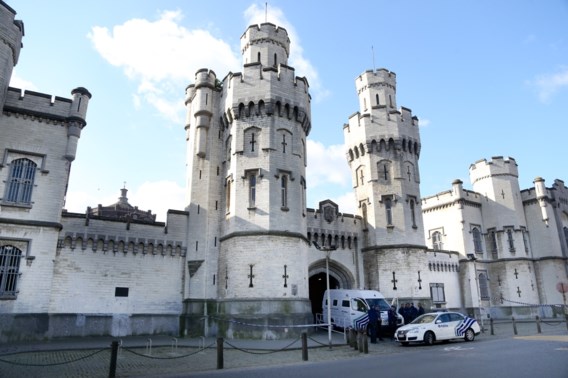The prosecutor’s office yesterday let it be known that the new lockdown would be strictly policed, and that repeat offenders could face a fine or even a prison sentence.
Today came news of the other side of that coin.
“All prosecutors’ offices are reviewing their priorities. We have come to internal agreements,” Ine Van Wymersch, prosecutor for Halle-Vilvoorde, told De Standaard.
Some judicial matters, such as non-urgent trials and certain police investigations, will have to make way for enforcement of the lockdown.
That goes, too, for some orders to turn up to be imprisoned. In all but the most serious criminal cases, a convicted person is allowed to go home to make arrangements before being ordered to turn up at a prison to be locked up.
That system also allows a chronically-overcrowded prison system to organise the flow of prisoners in and out of jails better.
Criminologist Tom Daems of the university of Leuven has suggested such a measure as a way of slowing the spread of coronavirus.
“If you were to postpone the implementation of a prison sentence until after the crisis, you would avoid having newly-infected convicts entering the prison,” he said.
Van Wymersch, meanwhile, said the suggestion would be considered on a case-by-case basis, bearing in mind the gravity of the crime and the length of sentence. In cases where imprisonment was urgent or unavoidable, the prisoner could of course be immediately behind bars, she said.
“All branches of the justice system need for the time being to weigh the importance of public safety against public health,” said Patrick Vandenbruwaene, a member of the college of prosecutors-general.
“A major meeting took place on Monday to discuss among other things how prisoner transports could be limited as far as possible. And we also looked at how we might keep the prisons coronavirus-free. Investigating magistrates are vigilant for possible contamination. They will not be locking up sick people along with healthy prisoners. But it is not the case that hundreds of people who would ordinarily be locked up are now walking around free because of the coronavirus.”
Meanwhile, the prison service has denied rumours of a case of coronavirus at the prison of St-Gilles in Brussels.
Some members of the prison staff failed to turn up for work this morning, explained spokesperson Kathleen Van De Vijver, which resulted in prisoners having their time on the exercise yard cut from two hours to one, and their telephone calls reduced from two to one.
In reaction, some prisoners refused to go back into the prison after the exercise period, and later spread a rumour that the measures were a result of a case of coronavirus.
"A number of prisoners are in fact in isolation at St-Gilles prison as a precaution, because they have a fever," Van De Vijver said. "But they have not been tested for Covid-19 and therefore are not awaiting test results."
Alan Hope
The Brussels Times

